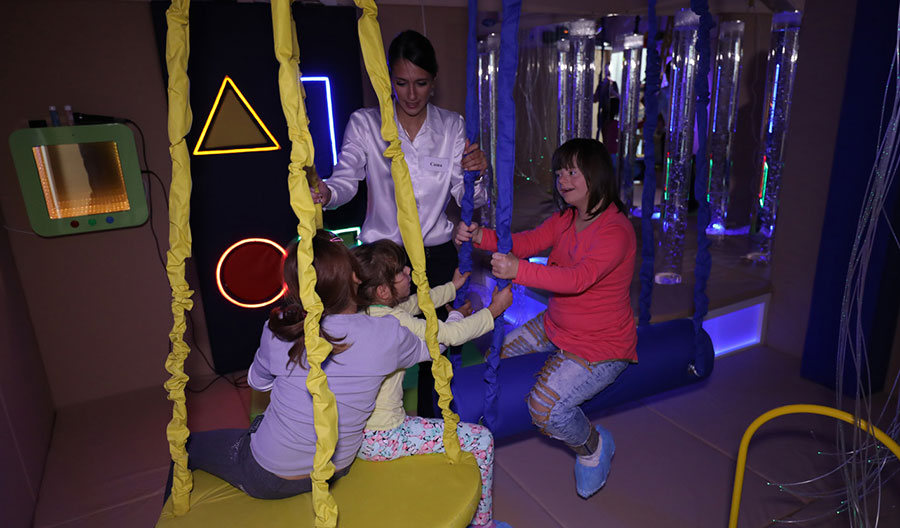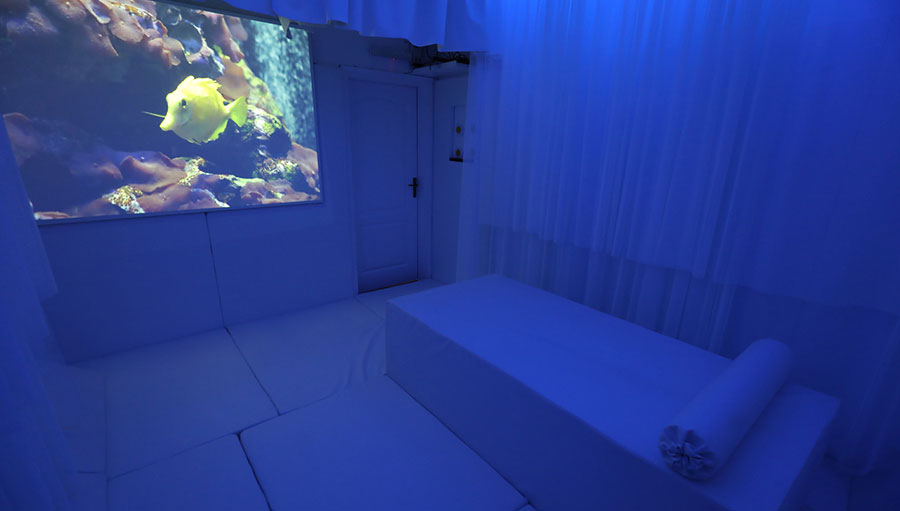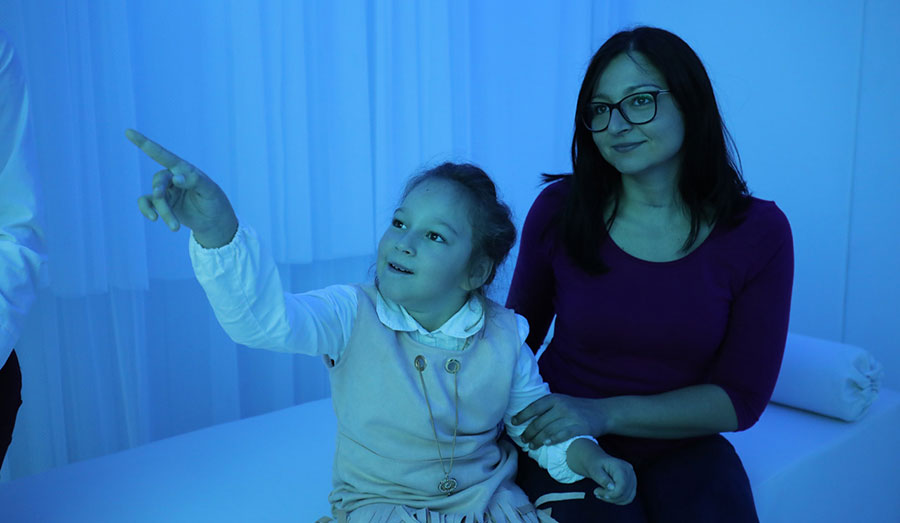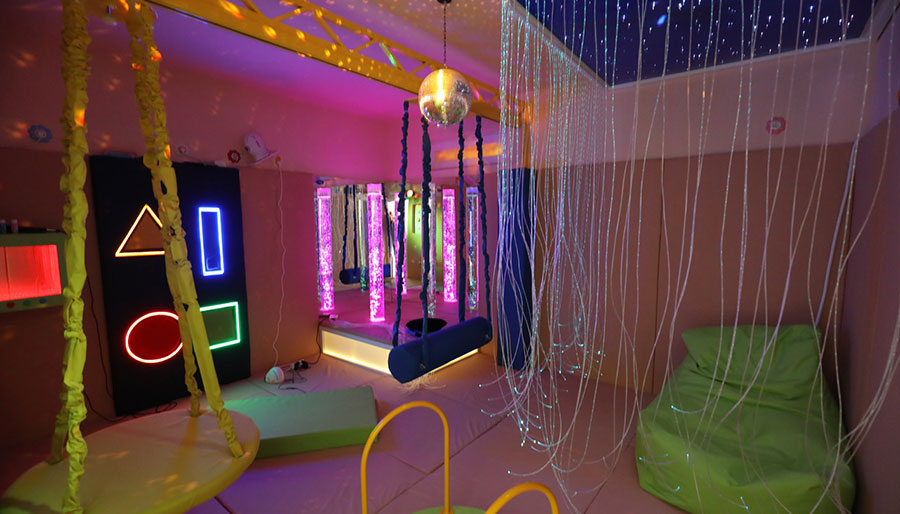Holistic community-based rehabilitation center “OSLONAC” began working at Anton Skala school, as a result of a joint project of the Municipality of Stara Pazova and the EU Delegation to Serbia, worth EUR232.812,88.
“Holistic community-based rehabilitation centre represents a mix of various types of therapy intended for persons with disabilities to overcome physical and sociological barriers in their communities through a holistic approach to people and their environment in the areas of health, education, skill development and social inclusion strengthening.
 The Centre “OSLONAC” will offer several forms of assistance to its beneficiaries – psychological, medical and physical therapy. Currently, the Centre is conducting sensory therapies for about 30 children and youths with various development difficulties (attention disorder and various forms of sensory impairment), with a tendency to increase the number of beneficiaries.
The Centre “OSLONAC” will offer several forms of assistance to its beneficiaries – psychological, medical and physical therapy. Currently, the Centre is conducting sensory therapies for about 30 children and youths with various development difficulties (attention disorder and various forms of sensory impairment), with a tendency to increase the number of beneficiaries.
President of the Municipality of Stara Pazova Djordje Radinovic noted that the project was very important for Stara Pazova as it contributed to community development and social inclusion of the most vulnerable groups.
 “We are glad that the EU Delegation to Serbia has granted money for implementation of this important project to the Municipality of Stara Pazova. Working in concert to make the Centre come true has brought us closer to the needs of vulnerable groups and helped us to find the best possible solutions for their inclusion. Stara Pazova will continue to financially support the Centre, because we believe that providing everyone with equal opportunities is a prerequisite for a healthy community,” said Djordje Radinovic President of the Municipality of Stara Pazova.
“We are glad that the EU Delegation to Serbia has granted money for implementation of this important project to the Municipality of Stara Pazova. Working in concert to make the Centre come true has brought us closer to the needs of vulnerable groups and helped us to find the best possible solutions for their inclusion. Stara Pazova will continue to financially support the Centre, because we believe that providing everyone with equal opportunities is a prerequisite for a healthy community,” said Djordje Radinovic President of the Municipality of Stara Pazova.
Director of the school Anton Skala Tanja Todorovic said that the Centre was the only one in Serbia providing innovative therapies, which might improve brain capacity and stimulation of senses.
“For the beneficiaries of OSLONAC, we have secured a holistic approach through sensory therapies – sensory room, white room and halo-therapy (salty room) – with professional assistance and support from defectology professionals, psychologists, education professionals and paediatricians. A combination of these therapies helps our beneficiaries overcome social barriers and make progress in education. It improves their skills and ensures further social inclusion,” said Tanja Todorovic.
 The total value of the project stands at EUR232.812,88. The Delegation of the European Union and the Municipality of Stara Pazova have secured 85 and 15 per cent of the project budget, respectively.
The total value of the project stands at EUR232.812,88. The Delegation of the European Union and the Municipality of Stara Pazova have secured 85 and 15 per cent of the project budget, respectively.
The project “Support for social inclusion of the most vulnerable groups, including Roma, through more diversified community-based social services,” funded by the European Union with EUR5.4 million, aims to ensure greater social inclusion of vulnerable groups in Serbia, such as the elderly, children, minorities, including Roma, etc. Within the project, the EU has initially donated EUR4.3 million in the form of 28 grants to be used in 36 towns and municipalities across Serbia by the end of 2017. Implemented by national and provincial institutions of social welfare, towns and municipalities, social care centres, civil society organisations, foundations, educational institutions and public companies, the projects under this action will increase the scope and quality of services at the local level in the field of social and health care, housing, education and employment, and thus strengthen the social inclusion of vulnerable groups.
The project is implemented by the European Union Delegation to the Republic of Serbia (www.europa.rs) in cooperation with the Ministry of Labour, Employment, Veteran and Social Affairs (www.minrzs.gov.rs).
For more information about the project, please visit www.socijalnainkluzija.rs




